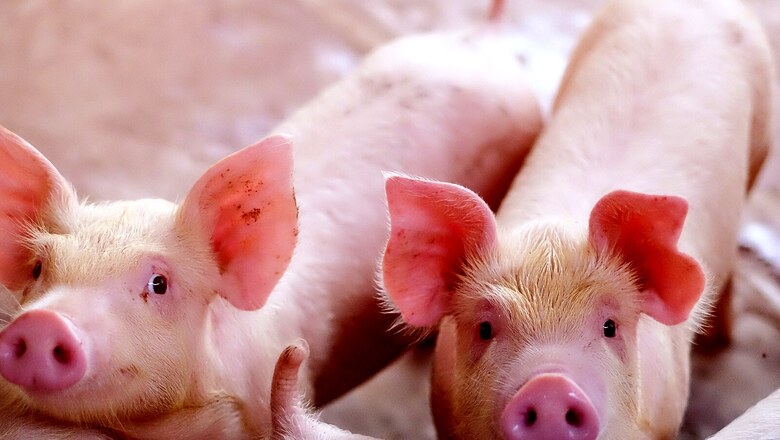
views
African swine fever, which affects both domestic and wild pigs, was first detected in India in February 2020. Since the outbreak, Assam has reported the death of more than 40,000 pigs and the disease has spread into 22 districts, according to the state government.
Apart from Assam the states of Mizoram, Sikkim, Tripura and Uttarakhand have also reported cases of African swine flu. This highly contagious fever causes diarrhoea, and nausea in pigs.
As the disease is spreading to more states, there are speculations about the severity of the disease and whether it can affect human beings.
What is African Swine Fever?
African
Swine Fever is a highly contagious and fatal animal disease that triggers an
acute version of haemorrhagic fever in pigs. The disease was first detected in
Africa in the 1920s and slowly spread into other parts of the world. There is
no vaccine for the disease and the mortality rate is almost 100%.
How Does It Affect Pigs?
The
disease is deadly once contracted. Symptoms of the disease include high fever,
loss of appetite, vomiting, haemorrhages in the skin, difficulty in breathing,
diarrhoea, and weakness.
Can It Affect Humans?
Unlike
Swine Flu, African Swine Fever does not transmit to humans. In other words,
humans cannot contract the disease. But, they can be the carriers of the
disease and spread it to perfectly healthy livestock.
Although
the disease does not affect human health, it can still affect humans in other
ways. Being extremely deadly for livestock, many people, who depend on these
animals can suffer economically.
How Can It Be Prevented?
With
no cure in sight, this disease can only be prevented by taking some very strict
biosecurity measures. You need to maintain impeccable hygiene conditions
Where
you keep your animals, especially pigs. Once the disease spreads in a
particular area, the only way to prevent the spread is by culling the animals.
Read all the Latest News and Breaking News here



















Comments
0 comment